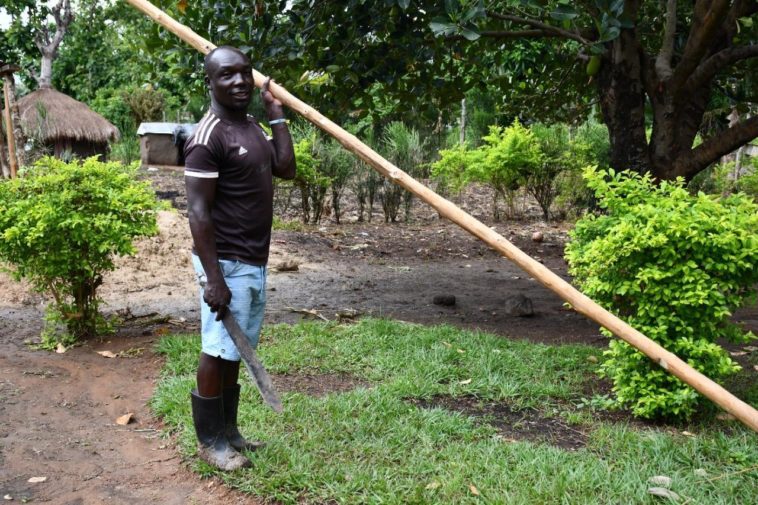South Sudan's returnee farmers yearn for peace to revive food production
Issued on:
After living for six years in northern Uganda’s Rhino Refugee Camp, Muki Nicholas, 24, and his family have returned home to Yei, in the southwestern part of South Sudan, in the hopes of resettling and tilling the land once again. He’s one of the 5,000 refugees who are attempting to rebuild their lives after fleeing civil war.
He said they endured the dangerous five-day walk through the bush in sweltering heat, because he couldn’t afford to pay for transport without selling their remaining food and clothing.
“I am a farmer! Since the day I came back I had started farming, now that God has given us the rain,” Nicholas told Africa Calling podcast.
Decades of civil war and continuing conflict have forced more than 2 million South Sudanese to flee their homes and farms, to seek safety and shelter in refugee camps bordering Uganda, Democratic Republic of Congo and Kenya.

Like Nicholas, many share the same dream– to cultivate their land, produce enough food for their families, and eventually return to large-scale farming in Yei River County.
But scattered violence as well as community conflict in parts of Central Equatorial State scared Nicholas off his own farmland once again.
Like many other farmers, he has been prevented from realising the potential of this fertile region in the southwest, known as the breadbasket of South Sudan.
Recent returnee and professional farmer Cicilia Seida, confirmed Nicholas’ fears.
“Going to our old farms is really very difficult,” says Seida.
“Government people and rebels collide in the area where there are civilians, and you see some who have been killed–everyone has that fear that they could be next,” she says.
Small plots close to home
More than six million people currently face food insecurity in South Sudan, and this figure is projected to increase due to the impact of the Covid-19 pandemic.
It’s the reason why kick-starting the country’s agriculture sector is vital, says Moses Mabe, the secretary for Yei’s Relief and Rehabilitation Commission.
“If your garden is five miles or 10 miles out of Yei even that can be impossible to go to,” he says.
“It can define if farmers have access to their crops or not,” he adds.
Many of the returnees are being encouraged to cultivate the small plots of land closer to their homes, as they await the situation to normalise.

But this won’t solve the long-term problem, says Dudu Emelia Kenyi, director of Agriculture in Yei River County.
“Food is limited because people are just digging within the town, because they don’t go very far from the town, to go very far from town means insecurity is there,” she said, adding, “large scale crop production is impossible as long as the farmers don’t feel safe”.
It is not just insecurity that returning farmers are confronting. Many people are returning to empty and demolished homes. All of their possessions, including farming tools they left behind when they fled the fighting, have since been stolen or vandalised.
Humanitarian organisations such as Finland Church Aid [FCA] have stepped in with cash vouchers supporting the most vulnerable groups to buy food and other non-food essentials and assist the returnees by supplying seeds and farm implements for family food production, for which the Yei River County farmers are thankful.
At the same time Seida and other returning farmers believe the South Sudan government has a greater responsibility and should play a larger role.
“Agriculture is a backbone and it is our life, we depend on agriculture,” says Saida.
“It’s because we are lacking agriculture inputs, that’s why we have problems,” she adds.
Published at Sun, 27 Jun 2021 15:52:34 +0000





Comments
Loading…